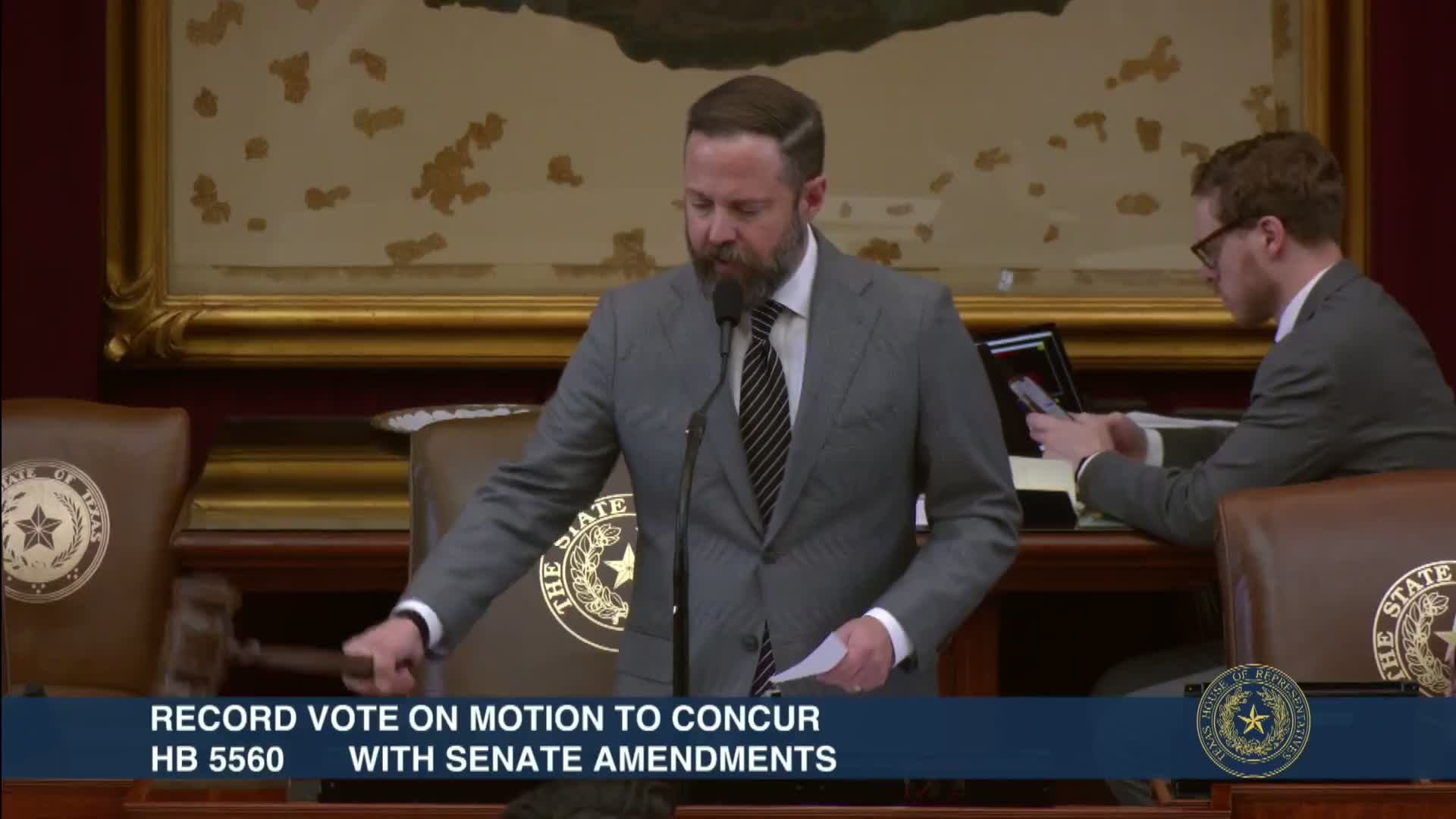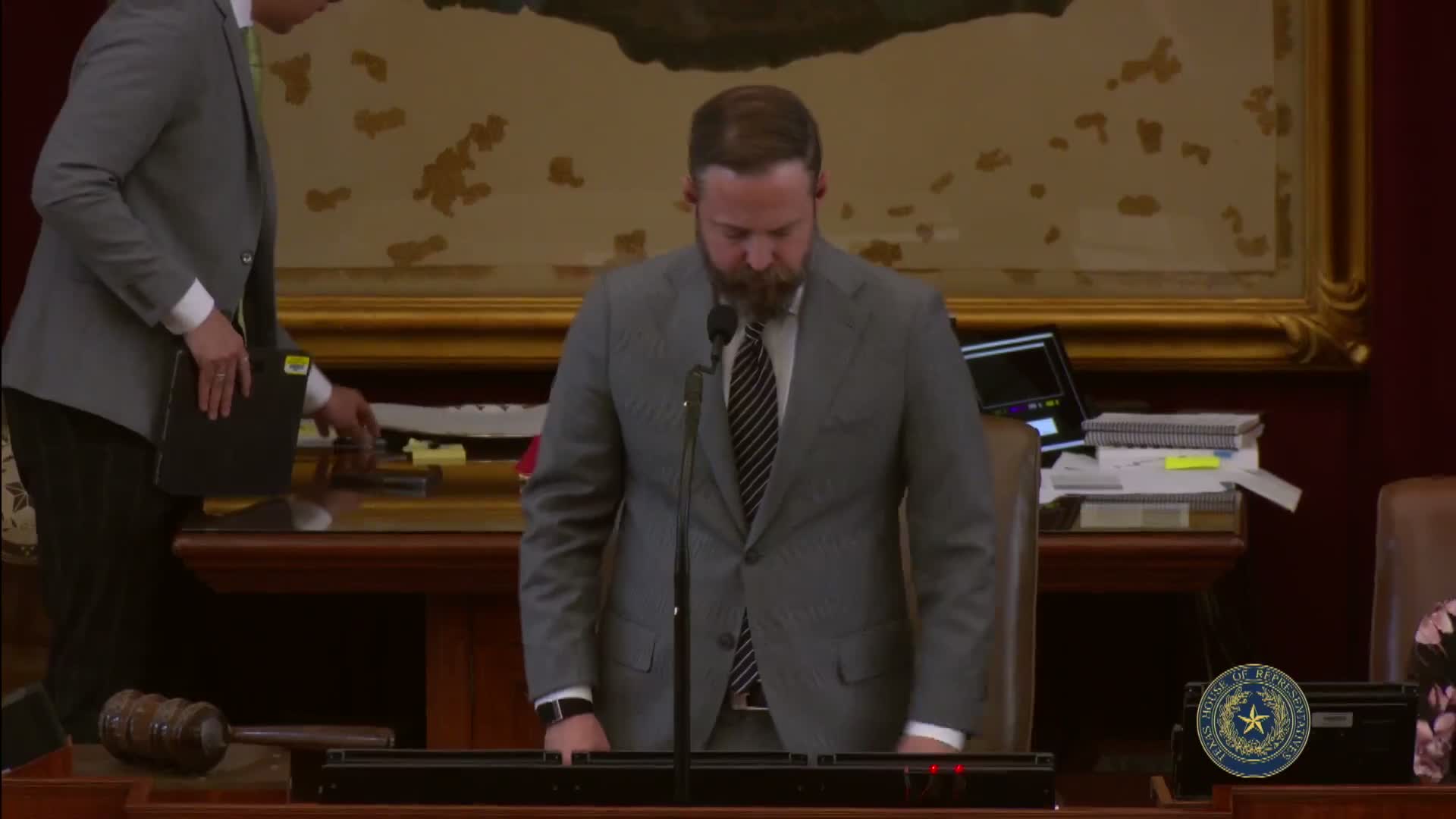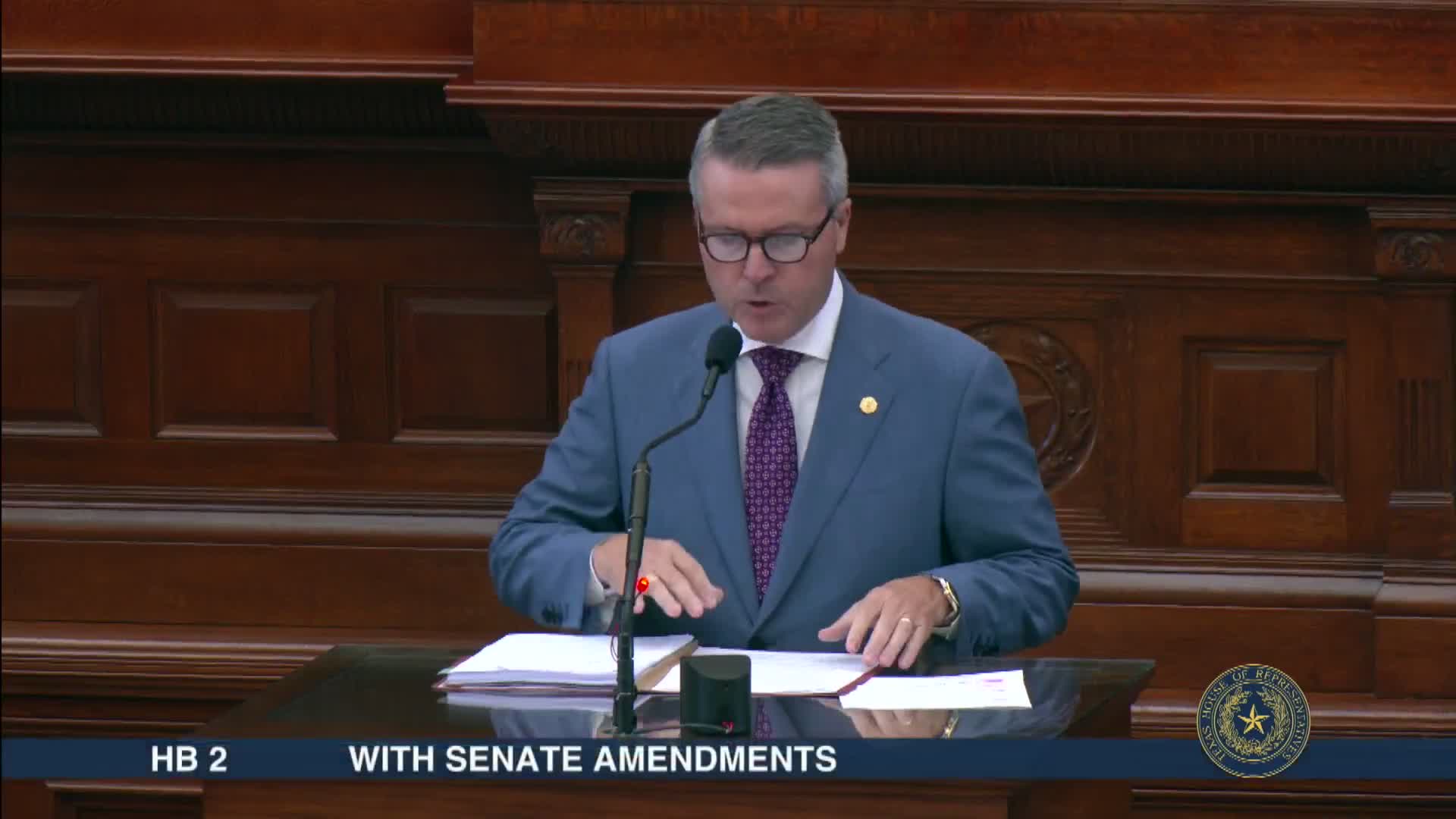Article not found
This article is no longer available. But don't worry—we've gathered other articles that discuss the same topic.

Votes at a glance: Key House actions and roll calls from today’s floor session

House Adopts Conference Report on SB 17, Tightening Limits on Foreign Ownership of Texas Real Property; Vote Draws Divisions

